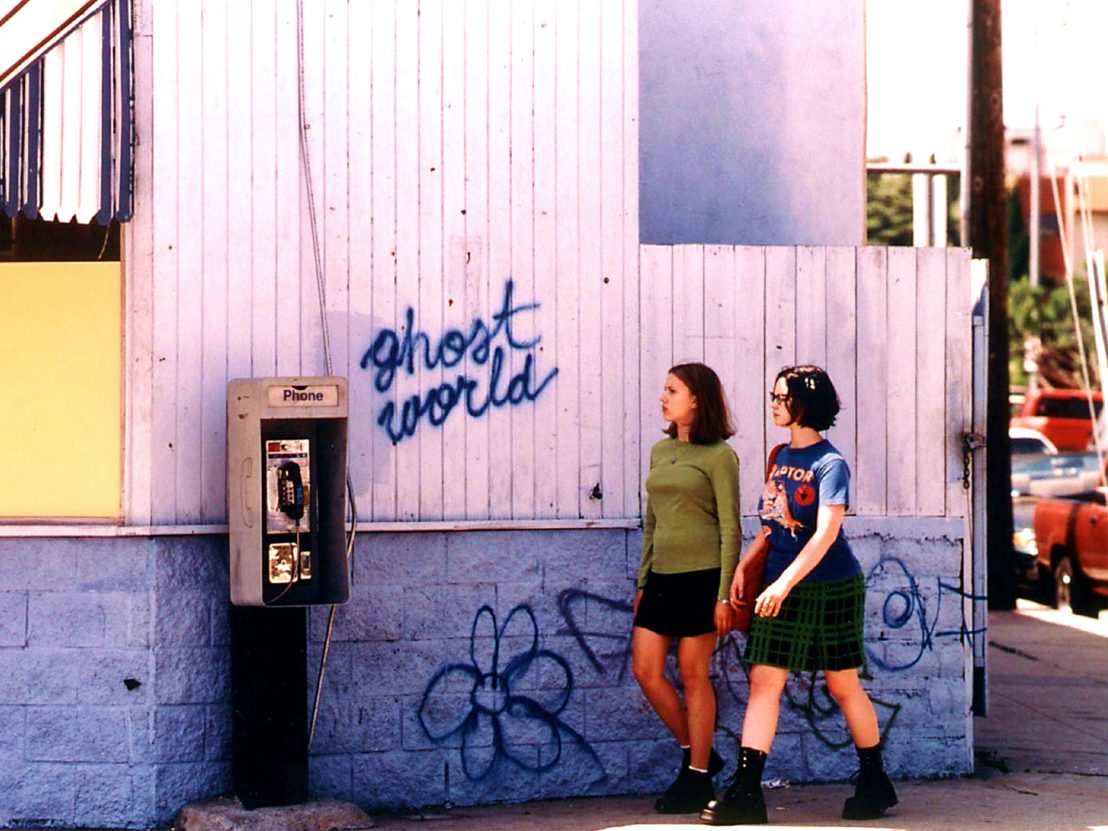
Suburban summers were safe and consistent; a slow, stretched out six weeks of water fights, bus trips to the out-of-town shopping centre, paper rounds and flat cider shared five ways in the trees by the park. Some unlucky friends were sent off to music camp. Others were whisked off to France or Spain.
Those of us who stayed would create small personal goals: learn to hula hoop. Get a boyfriend. Be slightly less of a loser than the year before. Of course, you never actually achieved anything in those six weeks, and when the nights turned chilly and you could smell wood smoke on the air, you realised with a pang of regret that it was over and the glamorous new grown-up personality you’d imagined for yourself was still just out of reach.
Ghost World came out in 2001, but I didn’t watch it until the summer after, when I was 16 and just about to decide what to do with the rest of my life. The film’s setting, suburban Los Angeles, looked nothing like my small semi-rural hometown in Somerset, England – but its slow, meandering plot full of slow afternoons, baby strollers, local adverts, tacky cafes and predictable local characters perfectly evoked those lethargic suburban summers growing up.
I remember instantly bonding with the film’s confused teenage protagonist, Enid Coleslaw (played by Thora Birch). She showed a version of womanhood that didn’t involve makeovers and finding the love of your life. She was different, not just because of her pale skin, jet-black bob and glasses, but because she was aimless, grouchy and misanthropic. She talked about sexual frustration and played cruel pranks to amuse herself. She falls for a much older guy then casts him aside like one of her outfits when she discovers he is not what she wants, after all.
There comes a point in most teenager’s lives when you open your eyes, look around at the world and realise that the transition from childhood to adulthood isn’t as easy as you’d imagined. In fact, it is often underscored by doubt, anxiety and a daunting pressure to define yourself. Daniel Clowes, the creator of the comic on which the film is based, has said of Enid’s character: “When I started out I thought of her as this id creature… Then I realised halfway through that she was just more vocal than I was, but she has the same kind of confusion, self-doubts and identity issues that I still have – even though she’s 18 and I’m 39!”
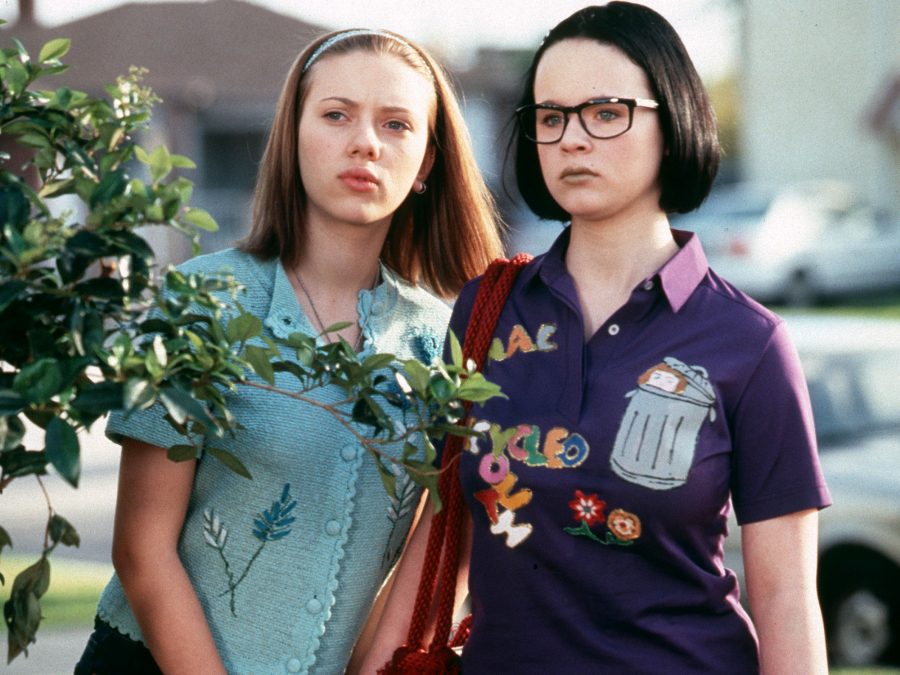
Like Clowes, I was less vocal than Enid, but I still related to her far more than any character I’d ever encountered on screen. In her, I saw my own dissatisfaction with my parent’s safe, suburban life; my own need to break away and be alone, balanced against the fear of loneliness and rejection.
Enid doesn’t know what she wants, and is only able to articulate her frustration. Her experiences perfectly evoke the anxiety that comes with understanding what it is you desire, testing your own autonomy – and the isolation that results from realising neither your family, nor your closest friend supports your rebellion. She’s aimless and unhappy in a way I could relate to as a teenager growing up, and she provided a refreshing, emotionally nourishing alternative to the preppy teen experience depicted in so many ’80s and ’90s films.
Where most of these coming of age movies are about protagonists who grow up and gain understanding of their place in the world, Ghost World is about loss: Enid eventually sheds everything that ties her to her home and takes off into the night. In a 2002 interview Clowes was asked if the film’s ending was a metaphor for suicide, and he answered: “It’s hard to figure out why people have that response. The first time I heard that I said, ‘What? You’re out of your mind. What are you talking about?’ But I’ve heard that hundreds of times.”
Like most teenagers, Enid is just misunderstood. In the film’s opening scene, the camera pans down a street of identical suburban houses at dusk, giving us a glimpse into the fabric of her town’s mundane existence – matching tableware, exercise bikes, cigarette smoke, fast food and couples slumped in front of the TV. Finally, we reach Enid, robed in scarlet satin, wildly dancing to the soundtrack of a ’60s Bollywood film in a room stuffed with colourful prints, toys and books. She isn’t apathetic or hopeless, and she’s definitely not suicidal: she’s full of life and energy. She just can’t find anything in her small hometown that interests her anymore.
That last slow summer finally came to an end, and on a melancholy Sunday when I could smell wood smoke on the air, I left my best friend, my family and my suburban hometown behind. Saying goodbye is never easy. Going out into the world without really knowing who you are or what you want is the hardest thing of all. But Enid taught me it’s okay to feel dissatisfied, sad or lonely, so long as you move on – and that if you wait until you’ve got your shit together, you’ll never leave.
Published 26 May 2018
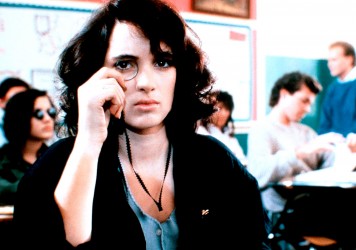
Its focus on eating disorders, rape and school shootings makes this a uniquely subversive teen satire.
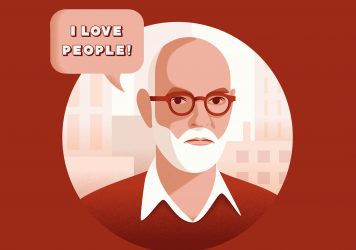
The renowned American comic artist discusses the latest adaptation of his work.
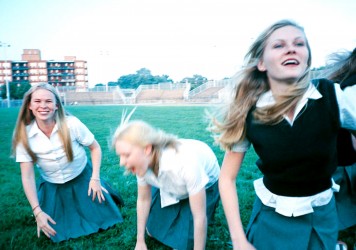
The Lisbon sisters helped me to understand my own awkward coming of age.